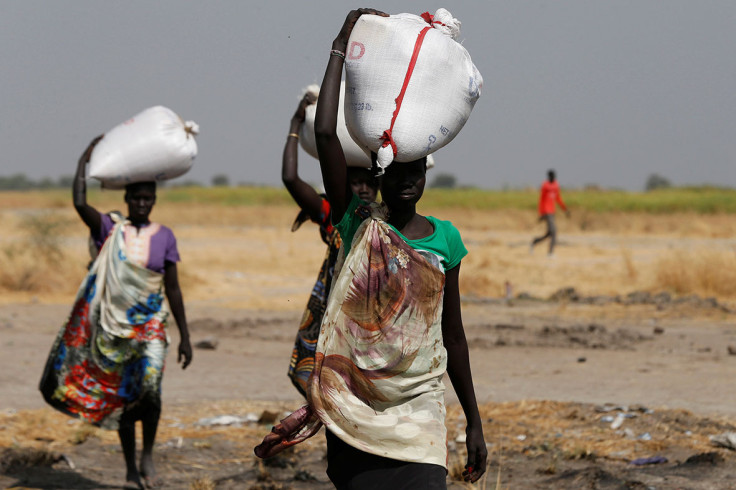South Sudan 'will not pay $1m ransom' for Indian engineers kidnapped by rebels
Fighters loyal to former vice president Riek Machar accused engineers of working for government.
The South Sudanese government has announced it will not pay a $1m (£0.8m) ransom for two Indian engineers kidnapped by rebels earlier in March. It is believed the pair was abducted by the Sudan People's Liberation Army-In Opposition (SPLA-IO), who are loyal to former vice president and current rebel leader Riek Machar.
"The government of South Sudan will not pay the ransom," South Sudan's information minister Michael Makuei was quoted by the Hindustan Times as saying.
It is believed the two engineers were kidnapped after being accused of working for the government, whose forces have been fighting rebels since a civil war broke in 2013.
Petroleum minister Ezekiel Lol Gatkuoth said the Indian government had informed authorities in Juba that it would not get involved in the incident.
"The government is not ready to pay a ransom that encourages terrorist acts," read a statement by the Transitional Government of National Unity (TGoNU) of the Republic of South Sudan.
Following the kidnapping, the transitional government also called for the blacklisting of Machar, who is currently in South Africa . The rebel leader fled Juba last year following fighting that killed hundreds. He told IBTimes UK in an exclusive interview that he was ready "to go home".
His wife, Angelina Teny, told IBTimes UK her husband can contribute to achieving peace in the war-torn nation, which is on the verge of a Rwanda-style genocide.
Earlier in March, the rebels were blamed for the abduction of eight humanitarian workers from US charity Samaritan's Purse. Reports claimed fighters demanded aid deliveries as ransom. However, the workers were then freed with Samaritan's Purse denying a request for ransom had been put forward.
The kidnapping, coupled with Juba's decision to charge aid workers $10,000 for visas, could hinder humanitarian work in the country, which recently declared a famine in parts of Unity State in the upper Nile region.
At least 100,000 people are facing starvation and millions across the country are affected by food insecurity.
South Sudan war

The South Sudan conflict erupted in 2013 when President Salva Kiir, of the Dinka ethnic group, fired his deputy Machar – from the Nuer group – who then became a rebel leader.
Ethnic-related violence targeting Dinka and Nuer peoples has killed an estimated 50,000, amid allegations of crimes against humanity committed by both sides, including rape, torture and the use of child soldiers.
At least 1.5m people have fled to other countries. The exodus has been deemed "Africa's worst refugee crisis".
More than 2m are internally displaced.
Kiir and Machar have agreed on several peace deals – the last of which was signed in August 2015 – but have failed to control their troops, who have broken every ceasefire since 2014.
© Copyright IBTimes 2025. All rights reserved.






















